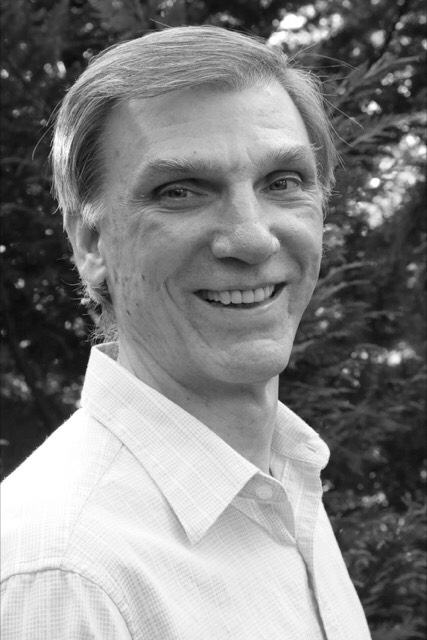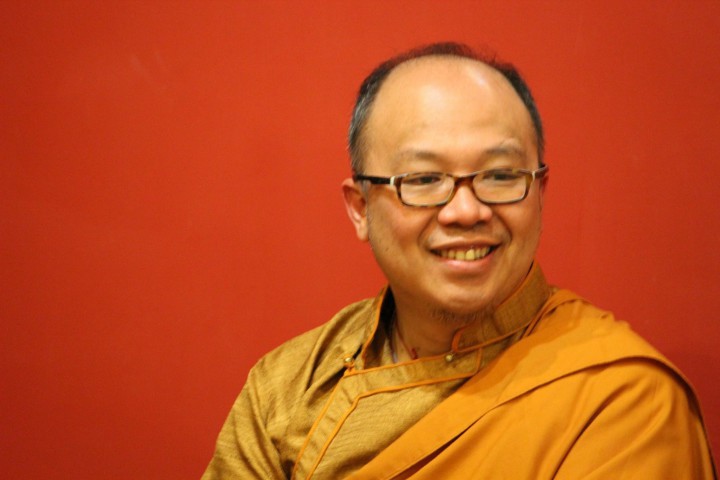Board-certified master hypnotist Susan Sawyer uses hypnosis to help people with stress, weight loss and insomnia, but her real passion is doing past-life regression — a technique that uses the deep relaxation and enhanced mental awareness of hypnosis to recover what is said to be past lives. It is perhaps an unlikely passion from a woman who spent 27 years working with victims of rape, domestic violence and child abuse in Iowa, where she saw firsthand the challenges many people face in the here and now of this life.
Although Sawyer uses past-life regression under hypnosis as a way to help improve mental health and overall well-being, she prefers to call it “spiritual hypnosis.” “When people come and work with me, they usually have been thinking of doing [a past-life regression] for quite some time,” she says. “I don’t see people who are on a vacation and want to do it for fun. This is powerful soul work. … People usually have it in their mind for a while.”
Overcoming a severe phobia is one reason some people choose to explore past lives, she explains. Drowning phobias are not uncommon, she says, and often a person is deathly afraid of drowning but has never had a near-drowning experience in this life.
“If that person, during a regression, finds that they drowned in a previous life, then they have the opportunity to do a ‘releasement,'” says Sawyer. “A releasement allows the soul to recognize that while [drowning] was a horrifying thing back in that lifetime, it doesn’t need to have an effect in this lifetime. The soul can choose to release the fears that were cramping its style, and then they can go through the rest of their life without that terrible fear of water.”
Just the mention of past lives can elicit eye rolls from many people, but according to a 2009 survey by the Pew Forum on Religion and Public Life, one in four Americans believe that past lives exist. And even among Christians, by far the largest religious denomination in the U.S., comprising 70 percent of the population, 22 percent believe in reincarnation, compared with 24 percent of non-Christians.
Still. Past life?
Bobby Baranowski, founder of the Asheville Past Life Project, admits that accessing past-life stories can be “out there.” “We start at woo-woo and then it gets weird from there. Luckily, Asheville is very comfortable woo-woo,” he says, laughing heartily. “It’s a very open-minded community here.”

Baranowski accesses past-life stories with a guided meditation developed by the late William Swygard. Baranowski learned it in the 1970s and found it to be a surprisingly simple method for accessing past-life memories. When he recently began using it again, he “realized this is something people should know about.” To that end he started a meetup group and is offering to lead people through the process.
Belief in past lives has deep historical, religious and native roots going back thousands of years, as demonstrated by its prevalence in many indigenous cultures, says Daniel Foor. His business, Ancestral Medicine, focuses on ancestral and family healing as well as developing a relationship with the natural world. Past-life stories can be useful, especially “as a way for people to talk about experiences they feel that don’t have any easy explanation in this life,” says the Asheville resident, who has studied Mongolian shamanism, West African Ifá/Òrìṣà tradition, Native American practices and European paganism.
One of the most powerful things about doing past-life work, according to Sawyer, is that people do not even need to believe in past lives to benefit. They simply need to be open to the possibility of past lives, she says. “I have people all over the map [doing past-life regressions], everyone from a 76-year-old Roman Catholic nun to rabbis to [people from] every religion I am familiar with,” she says.
Baranowski agrees. “What I tell people is that [the past-life memory] is either a physical manifestation that you were in a different body at a different time, or if you can’t accept that, then look at it like your consciousness is giving you a metaphor for your situation that you didn’t have,” he says.
Exploring past lives can be a consciousness-expanding experience that can also enhance peace of mind, he adds. “It gives a bigger context for your life. You’ll be stuck in day-to-day stuff and then you realize ‘I’m more than this, I’m bigger than this body, bigger than this life, bigger than this situation,'” he says.
In contrast, Buddhists believe in reincarnation but are not concerned with learning about specific past-life stories, says Hun Lye, founder and spiritual director of Urban Dharma in downtown Asheville. “Buddhists traditionally believe in the notion that we have an infinite number of lifetimes in the past, and if left to the way things are, we’ll also have an infinite number of lifetimes in front of us,” says Lye, who has a doctorate in religious studies and has previously taught at Warren Wilson College.
This cycle of birth and death continues until people are able to release what Lye describes as “confused mental and emotional projections.” He says that “the Buddha taught that the basic existential problem we all face — the experience of suffering, of unsatisfactoriness, of stress, of disease, of unhappiness … is rooted in a fundamental discrepancy between reality and perception and our failure to recognize this gap.” He explains that people will project onto whatever they “encounter [in life] based on [their] fears, delusions, anxieties, biases, conditioning and habit-patterns” stemming from this gap.
Confused mental and emotional projections that arise from anger, hatred, worry and jealousy not only disrupt peace of mind but are intimately connected with overall health, says Lye: “Tibetan medical understanding, an ancient medical system basically grounded in [the] Buddhist world view, says that all disease, all sickness, all illness arise from these basic confused projections [and] that all maladies come from there.”

One of the ways to be released from suffering related to confused projections is meditation, says Lye. “But meditating [on its own] is insufficient from a Buddhist perspective; you have to complement that with an appreciation of not causing harm and being careful with one’s actions and at the same time practicing openness of heart, or what we call generosity,” he adds.
Rabbi Justin Goldstein of Beth Israel Congregation in Asheville says ancient texts in the mystical wing of Judaism called Kabbalah also ascribe to a belief in reincarnation. The Hebrew word for reincarnation is “gilgulei neshamot,” which means ” the rolling of souls,” as in the soul rolls through time from one body to another body, says Goldstein. The belief “has been a foundational aspect of Jewish mystical theology at least since in the first century,” he says.
The basic idea is that “souls will inhabit a physical body, which are kind of like garments or clothes, and when that body expires, they will inhabit another one,” says Goldstein, who teaches the mystical stream of Jewish thought once a month after Friday night services. But, he adds, the contemporary Jewish Bible does not address reincarnation. “Most Jews are unaware this exists, and most contemporary Jews probably don’t believe … the soul will resurrect.”
Although the ancient mystical texts do not directly tie reincarnation to health, they do suggest that people have an obligation to protect their physical bodies, says Goldstein. The body is like an apartment you rent: “You need to keep it in same or better shape as when you rented it; the body belongs to God and it’s our responsibility to keep it in good form.”
Sawyer says she’s passionate about past-life regression because it can dramatically improve people’s lives in the here and now. “I’ve just seen people so transformed by having the experience and writing me later saying, ‘Oh my gosh, two weeks after seeing you I had this huge ‘aha!’ moment, and now I am doing something completely different with my life.’ It does transform lives, it really does. I think it touches all parts of life.”
More Info
WHAT: Past Life Project Meetup, led by Bobby Baranowski
WHEN: Jan. 9, 2017, 6:30-8:30 p.m.
WHERE: Community room, North Asheville Library, 1030 Merrimon Ave.
RSVP: pastlivesprojectavl@gmail.com or meetup.com/Asheville-Past-Lives-Project
Daniel Foor, Ancestral Medicine
ancestralmedicine.org
Susan Sawyer, Clinical Master Hypnotist
sawyerhypnosis.com
Bobby Baranowski
pastlivesproject.org
Hun Lye, Urban Dharma
udharmanc.com
Rabbi Justin Goldstein, Beth Israel Congregation
bethisraelnc.org




So I suppose the eternal cycle of Mtn X’s 3 cover stories can always be counted on like the changing of the seasons:
-Spirituality (and free advertising minus scientific fact checking for woo woo) Issue
-Food/Beer/Hotels/Yay/Ignore Economic Disparity ’cause Tourists! Issue
-Women in Business Issue
Those seem to end up on the cover at quite a higher rate that other local goings ons, but now I just play the game with my friends as to
‘which of three issues it will be this week’. I would wholeheartedly encourage readers to play this game with their friends-
make a friendly bet with friends the week before as to which topic will be explored yet again on the cover, then constantly remind them you can predict the future for the next 7 days if you’re right. Keep score if that matters, but it does pass the time.
I do appreciate the inclusion of Baranowski’s quote about ‘woo woo’ as it does speak volumes. He at least sounds like he possesses a sense of humor about it all. Laughing all the way to bank I believe it is called.
The only other issue I have with this article would be citing the Pew Research Center’s “1 in 4” study, without balancing it with the other validated 1 in 4 studies-
such as 1 in 4 Americans think the Sun goes around the Earth as well as 1 in 4 knowing for a ‘fact’ that our POTUS ‘weren’t born here and is a Moooooslim’.
All that suggests to me is that 1 in 4 Americans (at the very least) are gullible rubes.
So I guess none of these folks have taken James Randi up on his $1,000,000 challenge. Here’s an idea, drop all this past life nonsense and become advocates for getting kids vaccinated.
I guess when woo woo types are revealed to be unapologetic capitalists, well, it suddenly get quiet,
Right on, Spare Change.